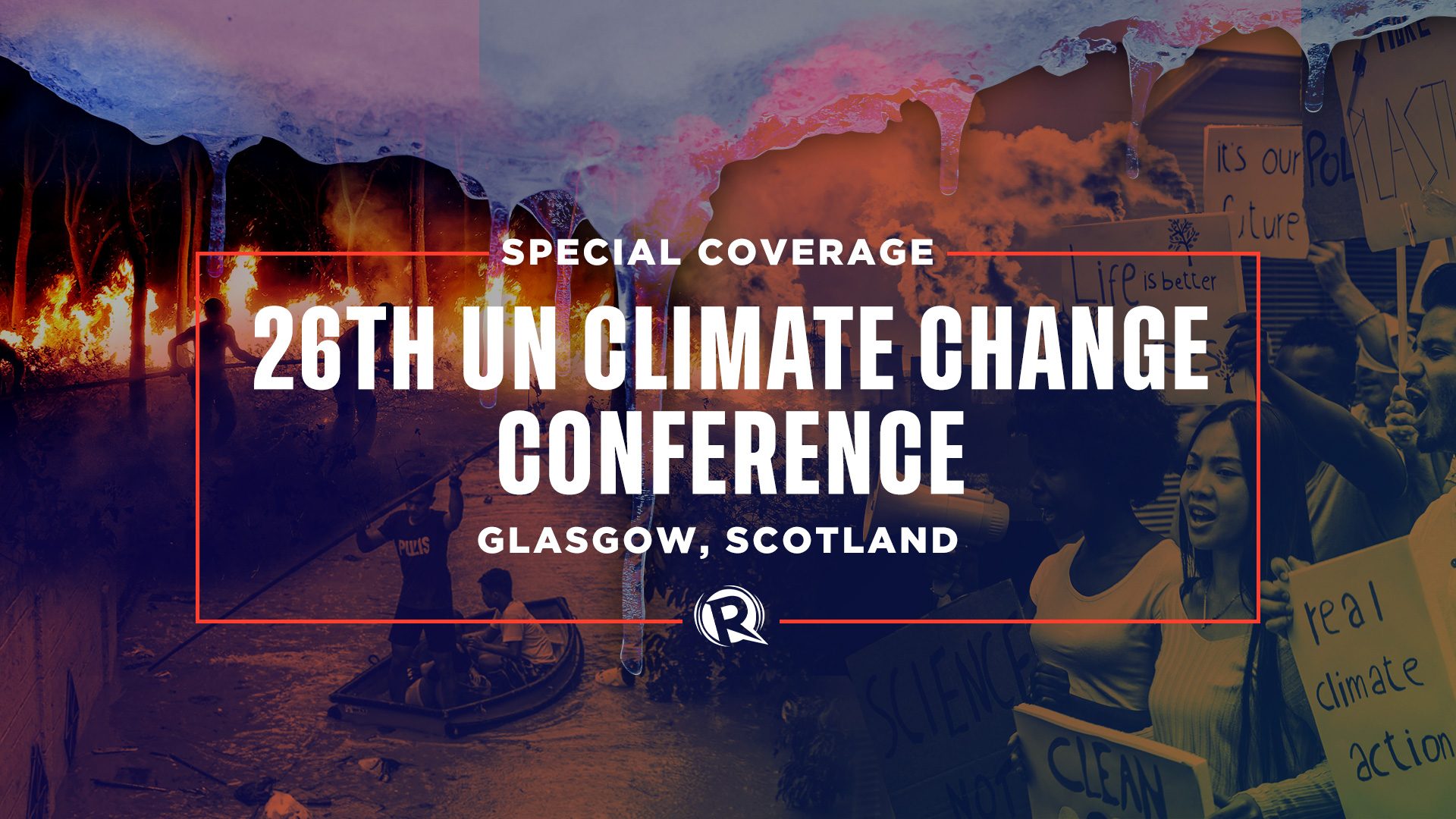WHAT YOU NEED TO KNOW
After a one-year postponement, the 26th United Nations (UN) Climate Change Conference of the Parties or COP26 is finally pushing through from October 31 to November 12, in Glasgow, Scotland.
Hosted by the United Kingdom in partnership with Italy, COP26 will bring parties together to “accelerate action towards the goals” of the historic Paris Agreement and the UN Framework Convention on Climate Change. The high-stakes climate conference is happening against the backdrop of the COVID-19 pandemic.
Bookmark and refresh this page for real-time news, photos, videos, and context and analyses on COP26.
LATEST UPDATES
Big climate change job awaits WTO – if it can step up
From laying down the law on fossil fuel subsidies to promoting low-carbon supply chains, there is no shortage of ways in which the World Trade Organization (WTO) could be at the forefront of the global fight against climate change.
The question for trade chiefs from 164 countries gathering in Geneva next week for the WTO’s first ministerial conference in four years is: are they ready to give it that job?
Pandemic debt adds to challenge of funding world’s climate goals
Huge spending by governments kept the world economy afloat during the pandemic as officials mobilized a fiscal response not seen since World War II to bolster household incomes and give businesses a fighting chance to survive the health crisis.
But the resulting nearly $300-trillion pile of debt held by governments, businesses, and households will leave many countries with vulnerable finances and weigh on efforts to address urgent challenges such as climate change and aging populations.
[OPINION] What does COP26 mean for vulnerable island communities in PH?
As the various negotiating groups and other climate change stakeholders come back from Glasgow, UK, and the Conference of the Parties 26 (COP26) dominates headlines in the coming weeks, what does it mean for vulnerable island communities, especially in developing countries like the Philippines? How do these negotiations translate into the everyday lives of the residents in remote, coastal, and disaster-prone areas?
Banks must put climate risk at core under proposed global rules
Banks around the world should put controls over financial risks from climate change at the heart of their boards and assess if their capital buffers could cope with floods, fires, and sudden asset price falls, banking regulators said.
Pressure is building on banks to play a more active role in helping global economies transition to a net-zero economy by 2050 and to buttress their own defenses against potentially sharp falls in the value of company loans and other assets.
[ANALYSIS] Duterte government begs, displeases at COP26
Upon the conclusion of the COP26 climate negotiations, we assessed the performance of the administration of President Rodrigo Duterte in the urgent task to negotiate for a just and sustainable climate future for the Filipino people.
What we saw was a national government that begs and displeases, much to the dismay of Philippine civil society delegations at Glasgow and vigilant Filipino citizens back home hoping for greater convictions and actions from the official representation of our global-top climate vulnerable nation.
Oil industry calls for inclusivity under climate efforts
Energy producers gathered in Abu Dhabi following the United Nations climate talks called on Monday, November 15, for greater inclusivity that would see more investment in hydrocarbons for energy security as they work to reduce emissions while developing their economies.
The world could not “simply unplug” from hydrocarbons and the oil and gas industry needed to invest over $600 billion a year until 2030 just to meet expected demand, said Abu Dhabi National Oil Company (ADNOC) chief executive Sultan al-Jaber.
Coal stocks lose ground after Glasgow climate deal
An international agreement to reduce coal use dragged miners’ shares lower on Monday, November 15, but tight supply of the commodity provided a floor for a sector that has chalked up huge gains this year.
United Nations climate talks in Glasgow ended on Saturday, November 13, with a deal targeting fossil fuel use. Wording was softened to call for a “phase down” rather than “phase out” of coal after lobbying from India, among others.


![[OPINION] The COP26 blah blah blah detector](https://www.rappler.com/tachyon/2021/11/tl-blahblah-sq.jpg?fit=449%2C449)
